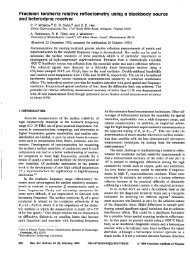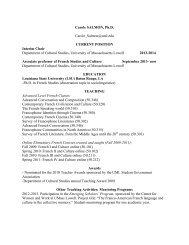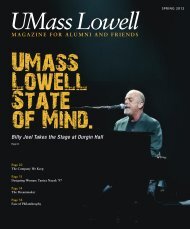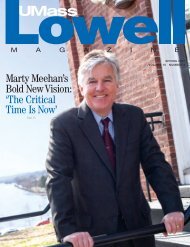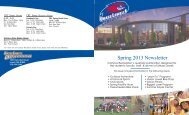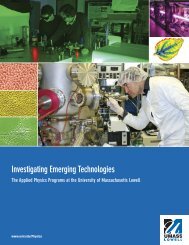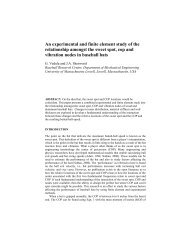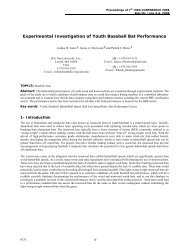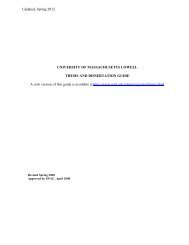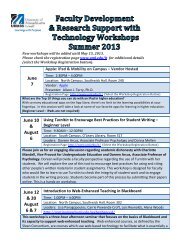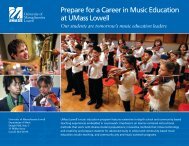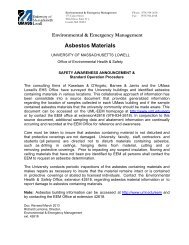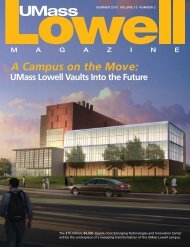comprehensive campus transportation plan - University of ...
comprehensive campus transportation plan - University of ...
comprehensive campus transportation plan - University of ...
Create successful ePaper yourself
Turn your PDF publications into a flip-book with our unique Google optimized e-Paper software.
<strong>University</strong> <strong>of</strong> Massachusetts Lowell Campus Transportation Plan<br />
Long-Distance Transit Catchment Area<br />
The long-distance transit catchment area, shown in Figure 18, is defined as<br />
those parking decal holders who live within three miles <strong>of</strong> a commuter rail<br />
station on the Lowell line. Some barriers to commuter rail use are:<br />
••<br />
Three-seat ride (car to train to bus)<br />
••<br />
Inefficient connections to UMass Lowell from Gallagher terminal<br />
••<br />
Lengthy total trip time<br />
••<br />
High cost<br />
••<br />
Lack <strong>of</strong> parking at commuter<br />
rail stations<br />
••<br />
Lack <strong>of</strong> flexibility or control<br />
TARGET<br />
COUNT<br />
Faculty/Staff 140 (7%)<br />
Student 550 (12%)<br />
Satellite Parking 49 (10%)<br />
Total 739 (10%)<br />
(x%) = percentage <strong>of</strong> respective<br />
permit holding population<br />
Summary <strong>of</strong> Alternate Mode Catchments<br />
Figure 18 Long Distance Transit Catchment Market<br />
A summary <strong>of</strong> the catchment market analysis is provided in Table 3. As<br />
shown, the largest markets are the carpool, pedestrian and bicycle modes.<br />
The long distance transit mode also showed a large market, but because<br />
the majority <strong>of</strong> the permit holders were students and since commuter rail<br />
travel has a high cost associated with it, this mode would be challenging<br />
and expensive to target.<br />
Emphasis <strong>of</strong> pedestrian and bicycling modes provides opportunities to<br />
partner and coordinate with other <strong>campus</strong> initiatives. Non-auto<br />
<strong>transportation</strong> provides an increase in physical activity for users, thereby<br />
promoting personal health. UMass Lowell’s Department <strong>of</strong> Human<br />
Resources has partnered with <strong>campus</strong> labor unions to create a Healthy<br />
Campus Initiative, in which walking and biking may play a role. In addition,<br />
anything that displaces an SOV trip represents a sustainable <strong>transportation</strong><br />
mode, so partnership with the <strong>campus</strong> sustainability effort is<br />
recommended.<br />
Vanasse Hangen Brustlin, Inc.<br />
23



